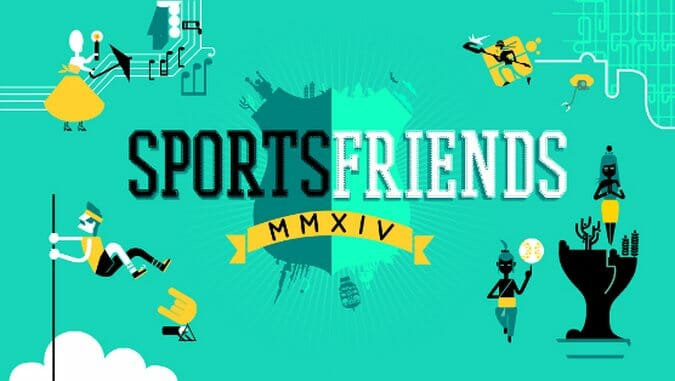Sportsfriends (Multi-Platform)

I’ve spent a bunch of money on board games recently, and I’m not entirely sure why. It seems like a natural progression of my nerdiness, and it’s certainly representing of my more completionist compulsive tendencies, but they also offer the opportunity to have four of my friends sit around a table and participate on an even social playing field. When you’re playing a board game, you’re never staring at your phone when the conversation turns away from you.
That’s the primary philosophy behind Sportsfriends, a quartet of independent games all focused on the type of local, living-room multiplayer that’s made a surprisingly potent comeback in recent months. Subsisting on goodwill and Kickstarter money, Sportsfriends arrives with a whole lot of heart. It’s a grassroots party game, with designs so simple and efficient they could’ve been Mario Party obstacles. Its charm will overwhelm you, but sometimes a back-to-basics approach can inadvertently turn up the barrier of entry.
Out of the four games included, the fan favorite will probably be BaraBariBall. A stripped-down, revved-up take on perennial dorm-room icon Super Smash Brothers, the mechanics are brutally simple. You need to get the ball in your opponent’s goal, but both of you are equipped with enough double-jumps to take you to the moon. This means you’ll routinely find yourself casting off the edge of the arena in faint hopes of retrieving the ball from the maw of defeat. It’s a game that revels in these stunts, it wants the drama to be consistently achievable. Much like other recent four-player couch games (Samurai Gunn, Towerfall,) it gives you a few simple mechanics that are polished to a mirror shine. Such a thing as high-level BaraBariBall play exists, which is pretty impressive for a game that uses about two buttons.
BaraBariBall also works because it’s the only game in the package that works well with two players. The silly, but flimsy Super Pole Riders can also be played with two, but it truly comes into its own with a quartet, and even that mostly thrives on the elastic chaos of imprecise controls. Hokra is an ultra-minimal combination of rugby, king of the hill, and pong that requires exactly four players, and then there’s the highly touted Johann Sebastian Joust, the graphic-less motion game that might be the first and only relevant moment the Playstation Move may ever have.
 Keep scrolling for more great stories.
Keep scrolling for more great stories.

